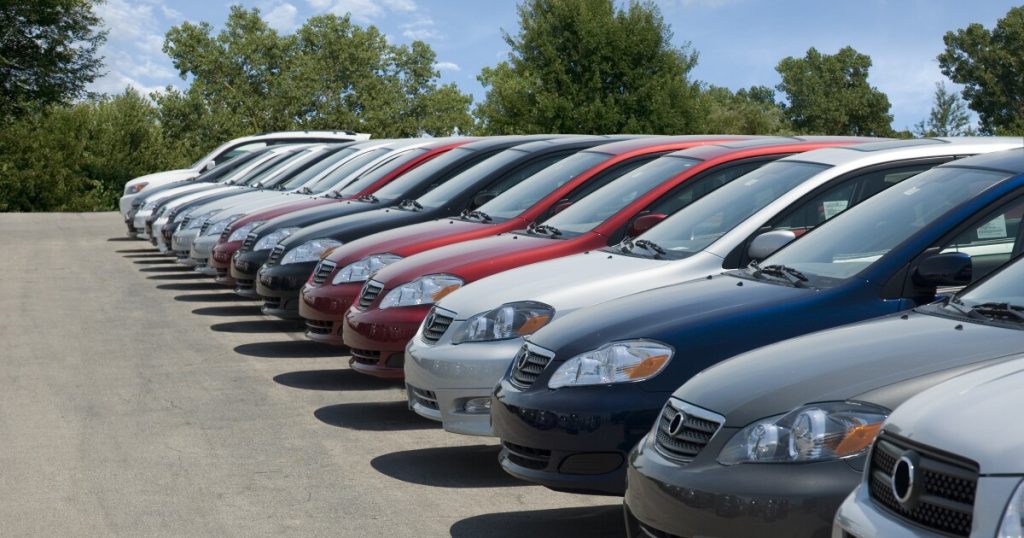- Key Insight: The Consumer Financial Protection Bureau’s proposal comes as auto loan delinquencies are hitting their highest levels in decades.
- What’s at Stake: Banks object to reduced supervision of nonbanks, arguing that the Dodd-Frank Act specifically requires consistent oversight of banks and nonbanks.
- Supporting Data: If the CFPB adopts a rule raising auto loan thresholds, the bureau would supervise just five auto finance lenders, up from 63 currently.
The Consumer Financial Protection Bureau wants to cut oversight of auto lenders — particularly those serving subprime borrowers — at a time when auto loan delinquencies are hitting new highs.
Acting CFPB Director Russ Vought proposed a rule change in August that would entail the CFPB limiting supervision of auto finance companies to those that originate more than 1 million loans a year — up from 10,000 loans currently. The change would slash oversight from 63 auto finance companies to just five, and potentially eliminate all oversight of subprime lenders.
The
Eamonn Moran, a partner at Holland & Knight, said the CFPB’s supervisory process has the effect of “putting the brakes on wrongdoing,” and the absence of supervision could “impact the CFPB’s ability to address potential market failures.”
“Without supervising as many players in the auto finance sector, the CFPB may lose valuable insights into the internal practices of some of the market’s key players,” Moran said.
Auto finance companies want the Trump administration to eliminate all supervision of auto lenders, claiming that CFPB oversight is unnecessary because the Federal Trade Commission and state authorities have enforcement authority over nonbank auto lenders, making CFPB oversight redundant.
Bank trade groups and consumer advocates — two groups rarely in agreement — object to any plan by the CFPB to cut
The CFPB received just
Kitty Ryan, the American Bankers Association’s senior vice president of fair and responsible banking, said scaling back supervision of nonbanks “would be a mistake.”
“The statutory directive is to cover larger participants, not the participants that serve the largest number of consumers,” wrote Ryan, a former deputy assistant director at the CFPB. “Raising the ‘larger participant’ threshold contravenes Congress’ intent to subject a broad range of market participants to potential supervision.”
The proposed rule change comes amid the messy collapse of
Celia Winslow, president and CEO of the American Financial Services Association, said that the Tricolor debacle shows that the CFPB has not been the best supervisor of auto lenders.
“Tricolor has been committing fraud since 2007 and despite the CFPB having authority to go in and supervise, either their supervision team didn’t catch the fraud, or they didn’t supervise them while they were more focused on lenders who were following the law,” Winslow said.
Art Wilmarth Jr., professor emeritus at George Washington University Law School, said that he agrees with the ABA, that “now is not the time to reduce supervision of significant auto lenders, especially those operating in the subprime space.”
“The Tricolor bankruptcy provides an important warning signal about the risks building up in the subprime auto loan segment, and I believe that ‘prime’ auto loans with FICO scores in the neighborhood of 650-750 are also in increasing jeopardy,” Wilmarth said.
A surge in auto loan delinquencies is viewed by some as ‘a canary in the coal mine’ for broader economic problems and consumer weakness. Federal Reserve Chairman Jerome Powell was asked last week how closely the Fed is monitoring subprime auto loan defaults.
“We’re looking at it carefully. We’re paying close attention,” Powell said at a Federal Open Market Committee press conference last Wednesday. “You’ve seen a number of subprime credit, automobile credit institutions having significant losses, and some of those losses are now showing up on the books of banks. I don’t see at this point a broader credit issue. It doesn’t seem to be something that has very broad application across financial institutions. But we’re going to be monitoring this quite carefully and making sure that that is the case.”
The bureau’s larger participant rule on auto financing first took effect in 2015, and since then the CFPB has taken roughly 20 public enforcement actions against nonbanks.
Winslow, at the American Financial Services Association, said the FTC and state regulators already handle compliance and enforcement and that CFPB supervision is duplicative. She criticized former CFPB Director Rohit Chopra for retroactively trying to enforce repossession practices.
Repossessions are “very adequately monitored at the state level, and there’s a reason that we have a federal system today, so the different states can deal with that in the different ways that they believe is right for their consumers,” Winslow said.
But banks and consumer advocates told the CFPB that states do not have the resources or expertise that the bureau has in consumer protection laws.
If the CFPB proceeded with the proposed rule, nonbanks would still be subject to FTC and state oversight but not supervisory visits by bank examiners.
“This is problematic,” wrote Ryan. “If state agencies engage in supervision, that supervision will be uneven, likely creating ‘gaps’ where certain non-depositories are not subject to any supervision.”
Erin Witte, director of consumer protection at the Consumer Federation of America, said that even if a few states were able to conduct robust oversight, that would leave consumers in most other states “exposed to legal violations and unfair practices.”
“The auto lending industry is already notoriously opaque, and the precarious dynamics of the market mean that lenders’ conduct will have increasingly significant impacts on borrowers,” Witte wrote in a comment letter. “This is the time for the CFPB to enhance its supervision of auto lending, not reduce it.”

